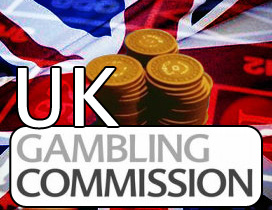With the language of the various state sports betting laws that are being introduced, it seems clear that online gambling will expand to more states soon with online sports betting possibly being on the docket as well. The laws will require regulations to be written by the states and each state will likely search around to see which set of rules fits their needs the most. The New Jersey Division of Gaming Enforcement has set out stringent rules, but there have been rumors that some state attorneys believe they don't go far enough. And in Nevada the rules online are almost identical to those for land-based casinos. The concern that online gambling could be more prone to issues like underage gambling, problem gambling or money laundering has allowed opponents like Sheldon Adelson to gain some traction in asking for online gambling laws to be repealed. For that reason, it may be prudent for states to look outside the U.S. when determining what to draft in their regulations since Europe, Australia and the Caribbean have more history and will have already dealt with many concerns that can arise.
Of the other countries that have already drafted rules overseas almost all of them like Alderney, Malta, the Isle of Man and Gibraltar have very strict guidelines and have not had any major incidents of money laundering or corruption and much of that can be attributed to the actions of the commission in the UK. The UK Gambling Commission (UKGC) has set up an extremely well-organized dispute process for both bettors and gambling operators that has been successful in handling beefs on both sides of the bet, have drafted very strict anti-money laundering guidelines and has top notch know your customer (KYC) regulations. And most importantly they are always adapting to make sure they stay ahead of any issues before they occur.
Gambling has been legal in the United Kingdom since 1960 and online gambling has been taking place in the UK since the early 2000s, but all online gambling was basically occurring without any real oversight. That changed with the passing of the 2014 Gambling Act, which was an update of the Gambling Act of 2005 and part of the 2014 act was the introduction of the UKGC. The Commission is an independent non-departmental public body that is funded by the UK Department of Culture, Media and Sport. It is the official body that regulates all forms of gambling in the UK, both land based and online apart from speed betting (Fixed Odds Betting Terminals) which are regulated by the Financial Conduct Authority. Along with overseeing the betting itself, the Commission is also responsible for ensuring fair advertising policies and one of the first decisions it made was to create a 'white list' of operators. The white list required any operator offering gambling services in the U.K to obtain a UKGC license to not only be legal per UK betting laws, but also to advertise their companies in the United Kingdom. But, the UKGC was also realistic.
 Realizing that many companies were operating outside the British Isles, the Commission decided to whitelist some jurisdictions, provided their regulations were up to the same standard as UKGC rules. There was a fee involved, but the benefits of getting whitelisted were believed to offset the cost. Consequently, all the countries that believed it was important for them to be able to cater to the UK market checked their guidelines to make sure they were adequate and where there were differences between their own and the UKGC they made changes to ensure all UKGC rules were being followed. As a result, the UKGC agreed to hand out a whitelisting to Alderney, Gibraltar, The Isle of Man, Antigua and Tasmania, along with any companies still operating in the European Economic Area, which included Malta and Ireland.
Realizing that many companies were operating outside the British Isles, the Commission decided to whitelist some jurisdictions, provided their regulations were up to the same standard as UKGC rules. There was a fee involved, but the benefits of getting whitelisted were believed to offset the cost. Consequently, all the countries that believed it was important for them to be able to cater to the UK market checked their guidelines to make sure they were adequate and where there were differences between their own and the UKGC they made changes to ensure all UKGC rules were being followed. As a result, the UKGC agreed to hand out a whitelisting to Alderney, Gibraltar, The Isle of Man, Antigua and Tasmania, along with any companies still operating in the European Economic Area, which included Malta and Ireland.
I asked Clive Hawkswood, the Chief Executive of the Remote Gambling Association located in England if he could talk about the UKGC and other European Commissions and say whether U.S. states could learn from Europe when they set out to create a regulatory body.
"From a regulatory perspective the truth is that in all jurisdictions the different sectors of the industry can learn from each other and it's disappointing, although for commercial reasons unavoidable, that different companies and market segments publicly criticize each other and frequently in ways that are not well-founded. The suggestion that online operators don't know their customers and who is really betting with them is a good example of that. It's thinking that experienced regulators left behind many years ago. Quite simply in jurisdictions like the UK and most other European licensing countries that is not acceptable. Land-based casino businesses primarily involve cash gambling and so clearly don't know who most of their customers are, whereas online is completely account-based and we have to know and confirm the identity of every customer.
Coming back to online checks and knowing whose money we are accepting, nobody would ever suggest those checks are fool proof. No industry in the world is immune from fraud, money laundering risks, or criminals spending their money gambling. We are certainly no different, but the online ID verification checks stand comparison with those in any other part of the gambling industry and pretty much with any industry outside of it. There are good commercial reasons for having and applying this level of data and, even if that was not the case, it is an absolute licensing requirement in all credible licensing jurisdictions.
Overlaying that in the EU, all online casinos are subject to the full money laundering regulations and regimes, such as the various EU Anti-money Laundering Directives, which means the statutory standards are very similar to those of banks and financial institutions. As part of that EU online casino operators must establish not just who their customers are, but for all those above a fairly low limit they must also investigate the source of the funds used (i.e. simply saying it's come via a bank or credit card is certainly not sufficient) and the wealth of the customer. Although those present very real challenges if online casinos are incapable of doing that then they must stop transacting with the customer and effectively suspend the accounts.
The bottom line is that if online operators (in the EU) fail to know who they are betting with then they face the prospect of losing their licences or, even worse, possible criminal charges. It is simply not an option.
And as mentioned previously what has made the UKGC so formidable and a model to look up to is that in its short existence it is always trying to find ways to make online gambling safer and that was evident with a press release from the UKGC website just this week:
New plans to make gambling online in Britain safer than ever before have been announced by the Gambling Commission . . .
"The proposals we have announced today are intended to protect children better, reduce the risks to vulnerable consumers and build on the measures we already impose on operators to know their customers and intervene at an earlier stage before consumers experience harm."
Tracey Crouch, Minister for Sport and Civil Society, said:
"We are committed to ensuring the gambling industry is safe and sustainable. These proposals for additional regulations will strengthen the controls already in place and further safeguard children and vulnerable people from the risks of online gambling."
Proposed changes and action include:
- Further protecting children by banning operators from providing free-to-play demo games until a consumer's age has been determined
- Improving the speed and effectiveness of age verification processes
- Ensuring operators set limits on consumers' spending until affordability checks have been conducted
- Tackling unacceptable marketing and advertising and unfair terms, and improving complaints and disputes procedures
- Strengthening requirements to interact with consumers who may be experiencing, or are at risk of developing, problems with their gambling.
The review also identifies five areas where the Commission is undertaking further work during the coming year. The Commission is going to:
- Assess the effectiveness of the current tools available to consumers to manage their gambling
- Review gambling product characteristics to identify whether particular features pose greater risk of harm than others
- Review our requirements on the protection of customer funds and consider whether there are sufficient protections around dormant accounts
- Consider whether gambling on credit should continue to be permitted
- Consider whether we need to make changes to ensure that consumers can withdraw funds more easily.
Without question most jurisdictions would simply introduce guidelines it believes are sufficient and then would not address them until something occurs that forces their hand, most likely years down the line. In North America the majority of gambling enforcement divisions have been far more reactive than proactive. But if one wants to silence the likes of Sheldon Adelson or Lindsay Graham when it comes to online gambling they must be proactive to prove that online gambling oversight is as good, if not better, than land based gambling. And in its short existence the UKGC has shown it is very proactive and always looking out for the interests of the industry.
Read insights from Hartley Henderson every week here at OSGA and check out Hartley's RUMOR MILL!






































